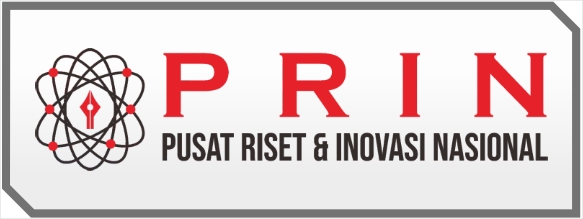Hubungan Paparan Media Sosial Tentang Pendidikan Gizi terhadap Tingkat Awareness Remaja pada Produk Makanan dengan Klaim Gizi
DOI:
https://doi.org/10.62027/vitamedica.v3i3.451Keywords:
Adolescents, Nutrition Claims, Nutrition Education, Social MediaAbstract
Adolescence is a crucial phase in shaping behavior and knowledge, including regarding nutritious food selection. The increased use of social media among adolescents provides opportunities for delivering nutrition education, but also carries risks associated with exposure to misleading information, including inaccurate nutrition claims. This study aims to analyze the relationship between exposure to nutrition education on social media and adolescents' awareness of food products with nutrition claims. The method used in this study was quantitative with an associative study design. The study sample consisted of 302 respondents, students from the Faculty of Public Health and the Faculty of Economics and Business, Airlangga University, class of 2022. Data collection was conducted online through a Google Form questionnaire, which included respondent characteristics and measured perceptions in shaping behavior related to exposure to nutrition education on social media and awareness of nutrition claims on food products. Data analysis was performed using Kendall's tau-b test to measure the relationship between variables. The results showed that TikTok was the most widely used social media platform by respondents, and there was a significant relationship between exposure to nutrition education on social media and adolescents' awareness of food products with nutrition claims (p < 0.01). Respondents who were more frequently exposed to educational content tended to have a better understanding and were able to respond more critically to nutrition claims. These findings emphasize the importance of utilizing social media as an effective nutrition intervention tool, particularly for adolescents who are active social media users, to increase their awareness of the importance of choosing nutritious foods. These results indicate the importance of optimizing social media as an effective nutrition intervention tool, especially for adolescents as a group of active social media users.
References
Ahmad, A., & Nurhidaya. (2020). Media sosial dan tantangan masa depan generasi millenial. Avant Garde, 8(2). https://doi.org/10.36080/ag.v8i2.1158
Amalia, S. N. I., Octaria, Y. C., Maryusman, T., & Imran, I. F. (2023). Hubungan pola penggunaan media sosial dengan perilaku makan, aktivitas fisik, dan status gizi pada remaja di DKI Jakarta. Amerta Nutrition, 7(2). https://doi.org/10.20473/amnt.v7i2SP.2023.193-198
Ansar, A., Hartini, D. A., Bahja, B., Faisal, E., Dewi, N. U., & Aiman, U. (2024). The influence of social media-based nutrition education on adolescents’ nutritional knowledge and body image perception. Poltekita: Jurnal Ilmu Kesehatan, 18(2), 178–182. https://doi.org/10.36929/pjik.v18i2.3976
Dovey, T. M., Torab, T., Yen, D., Boyland, E. J., & Halford, J. C. G. (2017). Responsiveness to healthy advertisements in adults: An experiment assessing beyond brand snack selection and the impact of restrained eating. Appetite, 112. https://doi.org/10.1016/j.appet.2017.01.015
Fakhira, N. V., Kastaman, R., & Pujianto, T. (2022). Peran influencer pada media sosial Instagram dan brand image terhadap keputusan pembelian Frutivez. Jurnal Pemikiran Masyarakat Ilmiah Berwawasan Agribisnis, 8(2). https://doi.org/10.25157/ma.v8i2.7907
Femyliati, R., Fikri, A. M., & Andriani, E. (2023). Pengaruh edukasi gizi melalui media sosial terhadap pengetahuan gizi dan pemilihan menu di aplikasi pesan antar makan. Amerta Nutrition, 7(2), 248–254. https://doi.org/10.20473/amnt.v7i2.2023.248-254
Jannah, M. (2016). Remaja dan tugas-tugas perkembangannya dalam Islam. Jurnal Psikoislamedia, 1(1). https://doi.org/10.22373/psikoislamedia.v1i1.1493
Jefrydin, S. N. S., Sulaiman, N., & Ahmad, A. (2020). Use of Instagram®️ to educate adolescents on nutrition labelling: A feasibility study in Selangor, Malaysia. Jurnal Gizi dan Pangan, 15(3), 149–156. https://doi.org/10.25182/jgp.2020.15.3.149-156
Jihad, F. F., Paradhiba, M., Is, J. M., Duana, M., Sriwahyuni, S., Darmawan, D., & Oktaria, Y. (2024). Pengaruh media sosial terhadap preferensi makanan sehat dan bergizi pada remaja: Studi di kalangan siswa SMA. Journal of Healthcare Technology and Medicine, 10(1), 3773.
Klein, T. A., Mair, C. A., & McNamara, T. K. (2024). The mediating role of healthy behaviors and self-perceived health in the relationship between multimorbidity and quality of life in European adults. Archives of Public Health, 82(1), 19. https://doi.org/10.1186/s13690-024-01435-w
Kurnia, N. D., Johan, R. C., & Rullyana, G. (2018). Hubungan pemanfaatan media sosial Instagram dengan kemampuan literasi media di UPT Perpustakaan Itenas. Edulib, 8(1). https://doi.org/10.17509/edulib.v8i1.10208
Kusuma, E. R. S. (2006). Analisis faktor-faktor yang mempengaruhi rasa percaya konsumen pada klaim kesehatan untuk meningkatkan intensitas pembelian (Studi kasus produk beras herbal Ponni Taj Mahal di Kota Semarang). Jurnal Sains Pemasaran Indonesia, 5(2).
Purba, N. P., dkk. (2024). Faktor-faktor yang mempengaruhi status gizi remaja MTs AL-Washliyah Desa Celawan Kec. Pantai Cermin Kab. Serdang Bedagai. Jurnal Keperawatan dan Kesehatan Masyarakat, 13(1). https://doi.org/10.31596/jcu.v13i1.2128
Ramos-Vera, C., Quispe-Callo, G., Basauri-Delgado, M., & et al. (2024). The mediating role of healthy behaviors and self-perceived health in the relationship between eating behaviors and comorbidity in adults. Archives of Public Health, 82, Article 203. https://doi.org/10.1186/s13690-024-01435-w
Rarastiti, C. N., & Hidayat, U. (2025). Hubungan penggunaan media sosial dengan status gizi remaja. Indonesian Journal of Nutrition Science and Food, 4(1), 15–20. https://e-journal.ivet.ac.id/index.php/IJNuFo/article/view/3671
Rusdi, F. Y., Helmizar, H., & Rahmy, H. A. (2021). Pengaruh edukasi gizi menggunakan Instagram terhadap perubahan perilaku gizi seimbang untuk pencegahan anemia pada remaja putri di SMAN 2 Padang. Journal of Nutrition College, 10(1), 31–38. https://doi.org/10.14710/jnc.v10i1.29271
Suryana, I. D., Mahmudah, U., Pusparini, & Suprihartono, F. A. (2023). Pengaruh penyuluhan gizi seimbang dengan media sosial Instagram terhadap pengetahuan, asupan energi, dan protein pada remaja putri sekolah menengah atas. Jurnal Gizi dan Dietetik, 2(2). https://doi.org/10.34011/jgd.v2i2.1802
Triyanti, I. (2016). Functional food: Challenges and opportunities from industrial perspective. Kuliah umum di Fakultas Teknologi Industri Pertanian Universitas Padjadjaran.
Tsani, A. F. A., Astirani, A. E., Amalia, R., Indraswari, L., Lupitasari, O., & Ayuningtyas, C. E. (2018). Persepsi tentang nutrition claims, perilaku makan, dan body image antara mahasiswi kesehatan dan non-kesehatan. Jurnal Gizi dan Dietetik Indonesia, 6(3), 157–165. https://doi.org/10.21927/ijnd.2018.6(3).157-165
Wang, S. (2023). Using social media from a marketing and educational perspective – Take TikTok as an example. SSRN. https://doi.org/10.2139/ssrn.4335364
Watanabe-Ito, M., Kishi, E., & Shimizu, Y. (2020). Promoting healthy eating habits for college students through creating dietary diaries via a smartphone app and social media interaction: An online survey study. Digital Health, 6, 1–9. https://doi.org/10.1177/2055207620970589
Yang, Y., Yan, Z., Zhu, J., Guo, W., Wu, J., & Huang, B. (2025). The development and validation of the Student Self-feedback Behavior Scale. Frontiers in Psychology, 15, Article 1495684. https://doi.org/10.3389/fpsyg.2024.1495684
Downloads
Published
How to Cite
Issue
Section
License
Copyright (c) 2025 VitaMedica : Jurnal Rumpun Kesehatan Umum

This work is licensed under a Creative Commons Attribution-ShareAlike 4.0 International License.

















